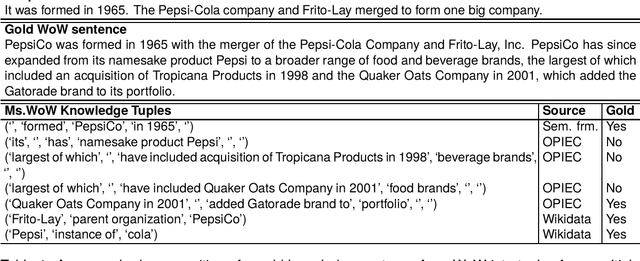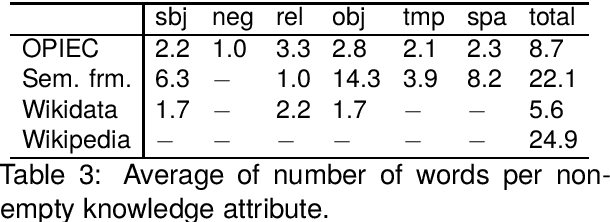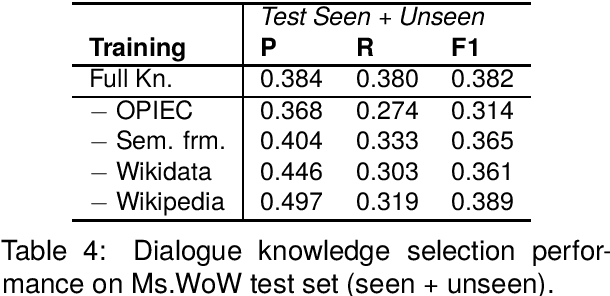A Knowledge Plug-and-Play Test Bed for Open-domain Dialogue Generation
Paper and Code
Mar 06, 2024



Knowledge-based, open-domain dialogue generation aims to build chit-chat systems that talk to humans using mined support knowledge. Many types and sources of knowledge have previously been shown to be useful as support knowledge. Even in the era of large language models, response generation grounded in knowledge retrieved from additional up-to-date sources remains a practically important approach. While prior work using single-source knowledge has shown a clear positive correlation between the performances of knowledge selection and response generation, there are no existing multi-source datasets for evaluating support knowledge retrieval. Further, prior work has assumed that the knowledge sources available at test time are the same as during training. This unrealistic assumption unnecessarily handicaps models, as new knowledge sources can become available after a model is trained. In this paper, we present a high-quality benchmark named multi-source Wizard of Wikipedia (Ms.WoW) for evaluating multi-source dialogue knowledge selection and response generation. Unlike existing datasets, it contains clean support knowledge, grounded at the utterance level and partitioned into multiple knowledge sources. We further propose a new challenge, dialogue knowledge plug-and-play, which aims to test an already trained dialogue model on using new support knowledge from previously unseen sources in a zero-shot fashion.
 Add to Chrome
Add to Chrome Add to Firefox
Add to Firefox Add to Edge
Add to Edge